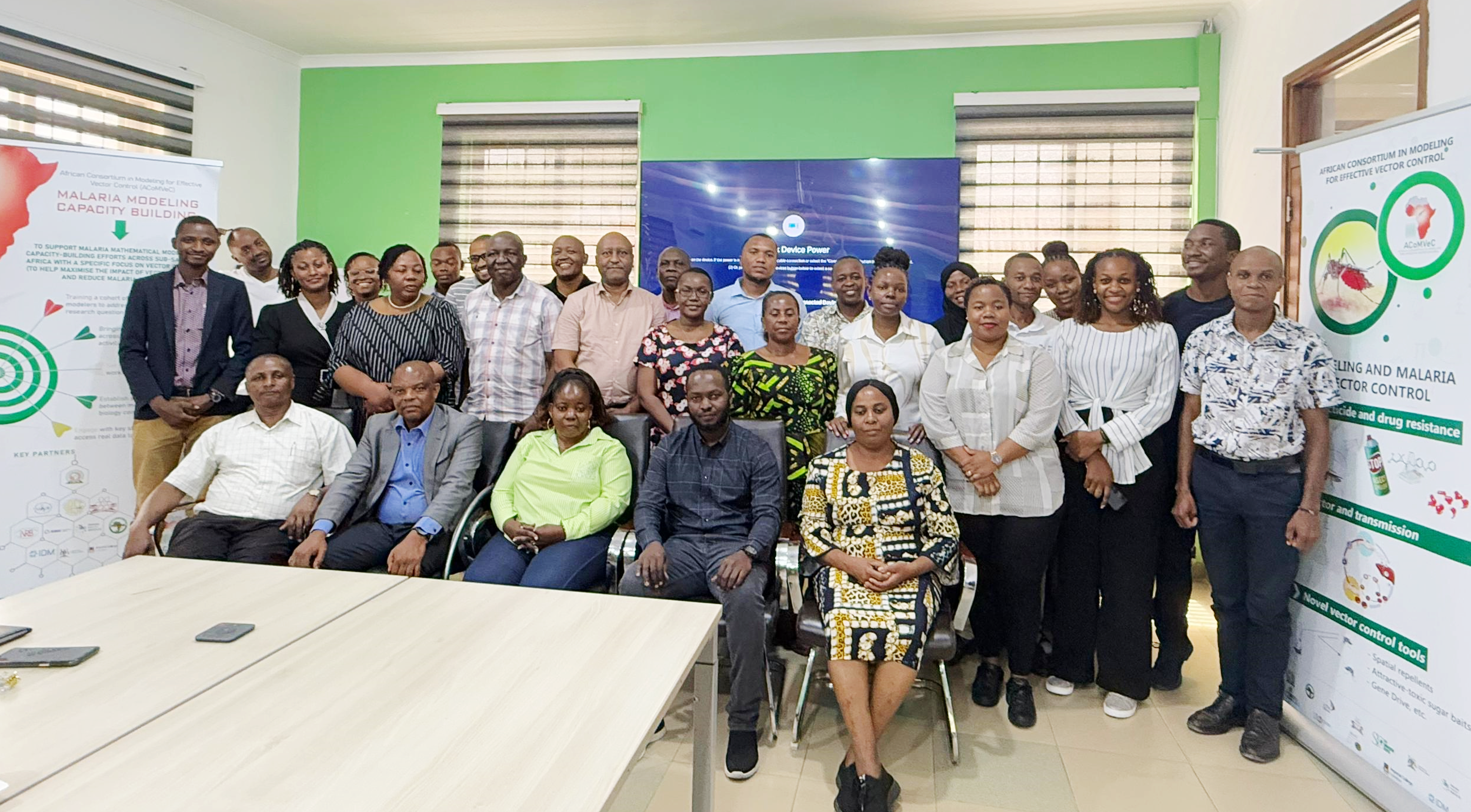
MEETING: Leveraging mathematical modelling for effective malaria control strategies in Africa

On December 6, 2024, the Ifakara Health Institute hosted an engagement meeting with members of the Vector Control Technical Working Group (VCTWG) and representatives from National Malaria Control Program (NMCP) in Tanzania.
The purpose of the one-day engagement meeting, held in Dar es Salaam and officiated by the Ifakara Chief Executive Director Dr. Honorati Masanja, was to share progress on developing mathematical modelling tools aimed at improving malaria control strategies across Africa.
During the session, Ifakara experts, led by a Research Scientist, Dr. Halfan Ngowo, presented milestones achieved in Tanzania, sparking productive discussions on tailoring vector control models to local conditions.
Attendees – including representatives of the Kilimanjaro Christian Medical College; National Malaria Control Program of the Tanzania Ministry of Health; National Institute for Medical Research, and President’s Office – Regional Administration and Local Government – explored how mathematical models can provide evidence-based insights into mosquito behavior, transmission dynamics, and the evolving resistance mechanisms of malaria vectors.
Participants offered valuable feedback, helping identify areas for enhancement. This collaborative exchange underscored the importance of aligning modelling efforts with national malaria control priorities to maximize impact and reduce the disease burden.
The initiative, funded by the Bill & Melinda Gates Foundation and sub-awarded by the Centre for Research in Infectious Diseases (CRID), Cameroon, seeks to bridge the gap in malaria vector control modelling. While models have been widely used for drug and vaccine efficacy assessments, vector control has seen limited application despite its crucial role in malaria prevention.
It focuses on training African modelers to support NMCPs in making rational, evidence-driven decisions. By equipping teams with predictive tools, the project aims to ensure that malaria control strategies are both effective and adaptable to emerging challenges, reinforcing Africa’s capacity for sustainable disease management.
